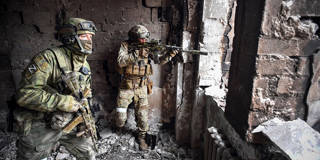
Why Putin Wants to Destroy Ukraine
For Russian President Vladimir Putin and the elite around him, the war against Ukraine is a civil war, a struggle for the very idea of Russia and for the rightness of its history as they define it. This is why a defeat for Russia, if it occurs, would be an epoch-shattering event.
VIENNA – Russian President Vladimir Putin’s war against Ukraine is so savage precisely because he believes Russians and Ukrainians are one people. To understand his decision to invade, we should listen to how he himself explains it – and we should listen even more intently when the rationale that he offers seems so absurd.